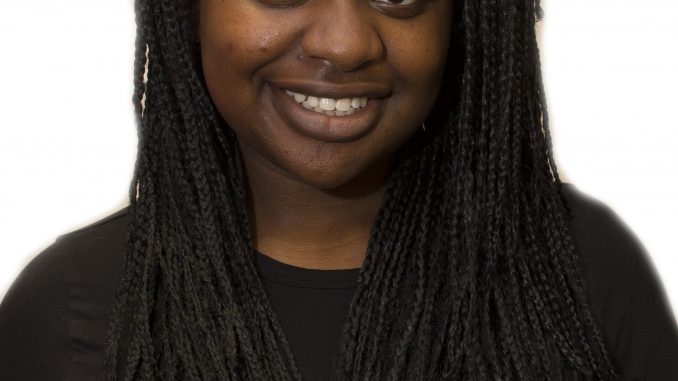
 It’s happening again. You showed up to crash my party.
It’s happening again. You showed up to crash my party.
I was actually having fun. When I walked in, all eyes were on me until you decided to try and steal my thunder. You probably thought you were going to stroll in here, ask for a cup, and dance with that cute guy I had my eye on. Well too late, sweetheart, I beat you to it. These are my friends and no one knows who you are and what you’re about. Maybe if we were friends, we could totally band together and rock this party. But we’re not, so take a step back and earn your spot, miss.
Wait, you’re walking near me now. Somehow, in this crowded room, you shuffled your way toward my direction and — oops, now you caught me staring at you. Crap, it’s the inevitable, everyone now sees us together.
Do they think we know each other? Do they think we’re friends?
Your outfit is OK, I guess. Now you’ll probably try to out dance me, too? Oh, did you really think you were the only exotic one here? Ugh, this is why you can’t come to my parties. This is my life. Yet, situations like this always happen.
We’re the only black women in this place.
Back in suburbia, I could get away with being “token” in many social situations. In many classes, I stood out by either being the only black person or girl in the room. At birthday parties, it was the same thing. I never felt bad about myself, because my friends were cool and they liked me. Only recently has my inner circle become diversified, but usually it’s just me and a few other black girls.
I only really feel the presence of another black woman because of her gender. If it were a black man who walked into the room, I may act more welcoming, because he’s a guy – bonus points if I find him attractive. A man won’t feel like a threat to me, but a woman will because we are women. I’ve heard this argument from my other girlfriends who feel the same. So why do I inherently criticize this other person?
Why can’t we be friends?
Like I said, I’m skeptical, because she’s a woman. I can easily notice her because of her skin. I don’t know what she thinks of me, or if she’s thinking of me, but I know that she has me feeling defensive. I don’t know if she’s actually better than me, but even if she’s found the cure for cancer, I internally loathe her just because she’s around.
We face so many similar battles in life: racial discrimination, pressures to be beautiful, the fear of sexual assault and more. Deep down, a black woman I see for the first time might be a goofball like me, and I could use a friend like that. Yet, in many moments like these at the gym or in class, I feel like I’m against her. Instead of being a kind face in an intimidating situation, I’m comparing myself to her.
Back in surburbia I could get away with being ‘token’ in many social situations.
It’s similar to that scene in “Not Another Teen Movie” when Malik tells a nameless black guy at a party that there is only supposed to be one black guy there, so the other should leave. It was a hilarious five-second scene, but those five seconds accurately showcased the racial quota issue in contemporary popular media. When a horror film has one black character, we expect him, or her, to die first. If there is a commercial for yogurt featuring a group of women, the one black woman is there with natural hair and a hint of attitude.
Model Chanel Iman was once told to leave a casting call because the director already found one black girl to be in the pictures, and that was enough. The one ethnic character is special to the scene they are in. They show enough diversity without being overbearing. With any quota, you can’t go beyond the allotted number. Too much diversity, after all, is blasphemous in media.
Therefore, there can be too much diversity at a house party. I’m supposed to wonder if we’ve reached the maximum amount of black women at one time.
Women are constantly in competition with one another. If you open a magazine, there is either a “who wore it best” campaign or an entire spread dedicated to “the most beautiful woman alive.” I am surrounded by women who either look better than me or are more successful than I am. Instead of feeling a sense of pride for my gender and the great things we accomplish, I am conditioned to be envious. I am programmed to be skeptical. Is her beauty real? How did she get her CEO position? Why does she need to be around me? I feel bad enough.
Many times, I have been in the situation where I become one of two black women at a party. I have felt the emotions that come with not feeling as special, because someone who looks like me is in the room. I wonder if the attention is now on her, because she is also different from the majority. In this situation, I never confront her. I let her do her thing, and I continue with my night. I separate myself from her and get lost in the crowd again. I think we are encouraged to assimilate into the masses instead of come together and be supportive of one another. It goes beyond a party and into our daily lives and what we see and interpret.
Brianna Warne can be reached at brianna.warne@temple.edu.


Be the first to comment